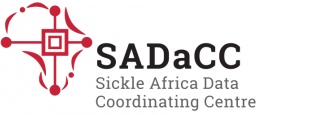Commonwealth Master’s Scholarships
Commonwealth Master’s Scholarships
Commonwealth Master’s Scholarships are for candidates from low and middle income Commonwealth
countries, to undertake full-time taught Master's study at a UK university.
Funded by the UK Department for International Development (DFID), Commonwealth Master’s
Scholarships enable talented and motivated individuals to gain the knowledge and skills required for
sustainable development, and are aimed at those who could not otherwise afford to study in the UK.
Purpose: To contribute to development needs of Commonwealth countries by providing training for skilled
and qualified professionals and academics, and to contribute to UK higher education and foreign policy
aims by encouraging collaboration and links.
Commonwealth Master’s Scholarships are offered under six themes:
1. Science and technology for development
The scholarship, which may be in any area of science or technology (including, for example, agriculture,
veterinary science, or forestry), will develop knowledge and/or skills that are directly related to the specific
needs of a low or middle income country. Where possible, applications should cite expressed national or
local priorities.
2. Strengthening health systems and capacity
The scholarship will develop knowledge and/or skills that will improve health provision or outcomes for
disadvantaged groups in low and middle income countries. A range of approaches could be adopted, such
as training staff to fill critical shortage areas; establishing better systems, processes, or management;
health promotion and improving understanding of non-take up; or developing new treatments.
3. Promoting global prosperity
The scholarship will support economic prosperity in low and middle income countries. The knowledge
and/or skills gained could lead to, for example, enhanced trade capacity; improved economic
understanding or decision-making by business or government; new products and services; or long-term
capacity building, through the development of entrepreneurial skills, for instance.
3
4. Strengthening global peace, security and governance
The scholarship will develop knowledge and/or skills that will strengthen peace and security at national,
regional, or international levels. Multiple approaches could be used, such as strengthening open and
transparent governance; improving mutual understanding within and between societies; or building systems
that reduce the potential for conflict or encourage its resolution.
5. Strengthening resilience and response to crises
The scholarship will develop knowledge and/or skills which will help low and middle countries adapt to
changing contexts, withstand sudden shocks, or increase capacity to preserve the continuity of operations
following such events. This could apply to a broad range of threats, including natural and physical
disasters; long-term threats such as climate change; interruptions to the supply of key resources; or sudden
economic or technological disruption.
6. Access, inclusion and opportunity
The scholarship will develop knowledge and/or skills that will promote opportunity amongst historically
disadvantaged groups in low and middle income countries. This could be through, for example, expanding
educational opportunities; conducting community outreach; enhancing access to decision-making; or
increasing understanding of the barriers faced. A range of disadvantage can be addressed – including
social, economic, gender, ethnic, regional, or political – provided that the need is clearly stated.
HOW TO APPLY
You should apply to study at a UK university which has a part funding agreement with the CSC. Part
funding agreements are at the discretion of individual universities. For a full list of UK universities that have
agreed to part fund Commonwealth Scholarships, visit http://cscuk.dfid.gov.uk/apply/ukuniversities/part-funding/
The CSC does not accept direct applications for these scholarships.
You must apply to one of the following nominating bodies in the first instance:
– this is the main route of application. For a full list including contact
details, visit http://cscuk.dfid.gov.uk/apply/national-nominating-agencies
-governmental organisations and charitable bodies. For a full list, visit
http://cscuk.dfid.gov.uk/apply/commonwealth-masters-scholarships/nominat...
All applications must be made through one of the listed nominating bodies. Each nominating body is
responsible for its own selection process and may have additional eligibility criteria. You must check with
your nominating body for their specific advice and rules for applying, and for their own closing date
for applications.

